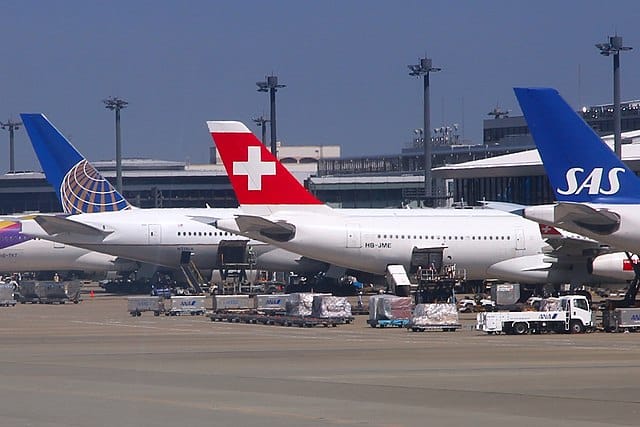Airlines Sold Your Flight Data to Homeland Security—Without Telling You
Your boarding pass holds more secrets than you think. While you've been focused on baggage fees and cramped seats, major airlines have been quietly profiting from something far more valuable: your personal travel data. Recent investigations reveal that airlines have been selling passenger information to the Department of Homeland Security (DHS) for years—and they've gone to great lengths to keep it under wraps.
The Hidden Data Marketplace
Behind the scenes of America's aviation industry lies a lucrative data exchange that most passengers never knew existed. Airlines have been systematically collecting and monetizing detailed passenger information, creating comprehensive profiles that extend far beyond basic flight details.
This isn't just about your name and destination. The data packages include travel patterns, frequent flyer status, seat preferences, meal choices, companion travelers, payment methods, and even behavioral indicators flagged during booking or check-in processes. For intelligence agencies like DHS, this information represents an unprecedented window into American travel behavior and potential security patterns.
What Airlines Are Really Collecting
The scope of data collection extends far beyond what appears on your boarding pass. Airlines maintain detailed digital dossiers that include:
Travel History and Patterns: Complete records of past flights, destinations, booking patterns, and travel frequency that can reveal personal and professional relationships.
Financial Information: Payment methods, upgrade purchases, and spending patterns that provide insights into economic status and priorities.
Behavioral Data: Click patterns on airline websites, time spent browsing destinations, abandoned bookings, and customer service interactions that reveal decision-making processes.
Biometric Information: Increasingly, airlines collect facial recognition data, fingerprints for international travel, and other biometric identifiers that create permanent digital signatures.
The Government Connection
The relationship between airlines and government agencies like DHS operates through both formal programs and informal data-sharing agreements. The Transportation Security Administration (TSA) and Customs and Border Protection (CBP) have established data-sharing partnerships that airlines describe as "security cooperation" but function more like commercial transactions.
These arrangements typically involve airlines receiving government contracts or regulatory benefits in exchange for passenger data access. The financial incentives are substantial—data analytics firms estimate that passenger travel data can be worth $15-25 per individual profile when sold to government agencies.
Privacy Laws Aren't Protecting You
Current privacy regulations contain significant loopholes that airlines exploit to justify these practices. The Aviation and Transportation Security Act provides broad exceptions for "security-related" data sharing, while the Privacy Act of 1974 doesn't adequately address modern data collection techniques.
Airlines often bury data-sharing consent in lengthy terms of service agreements that passengers rarely read. Legal experts note that these agreements frequently use vague language about "security partnerships" and "government cooperation" without explicitly stating that personal data will be sold or shared for non-security purposes.
International Passengers Face Extra Scrutiny
International travelers face even more extensive data collection and sharing. The Passenger Name Record (PNR) system requires airlines to provide detailed passenger information to multiple government agencies, including travel companions, contact information, payment details, and seat preferences.
This data is shared not just with U.S. agencies but with international partners through information-sharing agreements. A single international flight can trigger data sharing with dozens of government entities across multiple countries.
What This Means for Your Privacy
The implications extend far beyond aviation security. Travel data reveals intimate details about personal relationships, business activities, political affiliations, and lifestyle choices. This information can be used for purposes far removed from transportation security, including:
- Creating behavioral profiles for other government investigations
- Monitoring political activists and journalists
- Building social network maps of personal and professional relationships
- Supporting immigration enforcement actions
Taking Control of Your Data
While completely avoiding data collection is nearly impossible when flying commercially, travelers can take steps to limit their exposure:
Use cash for ancillary purchases when possible to reduce financial tracking.
Limit loyalty program participation or use programs that offer stronger privacy protections.
Review and modify privacy settings in airline apps and websites regularly.
Consider legal consultation if you believe your data has been misused.
The airline industry's secret data trade with government agencies represents a fundamental breach of passenger trust. While airlines profit from your personal information, passengers bear the privacy costs without meaningful consent or compensation. As this practice becomes more widely known, expect increased pressure for legislative action and stronger privacy protections.
Understanding these data practices is the first step toward protecting your privacy in an industry that has prioritized profit over passenger rights.
